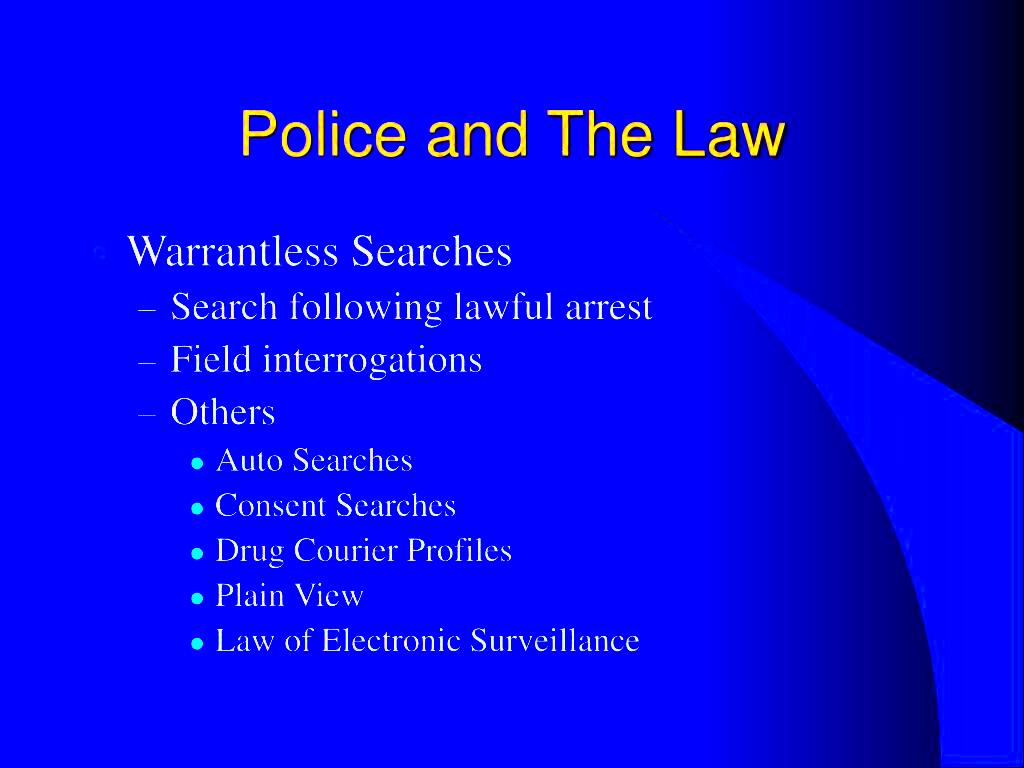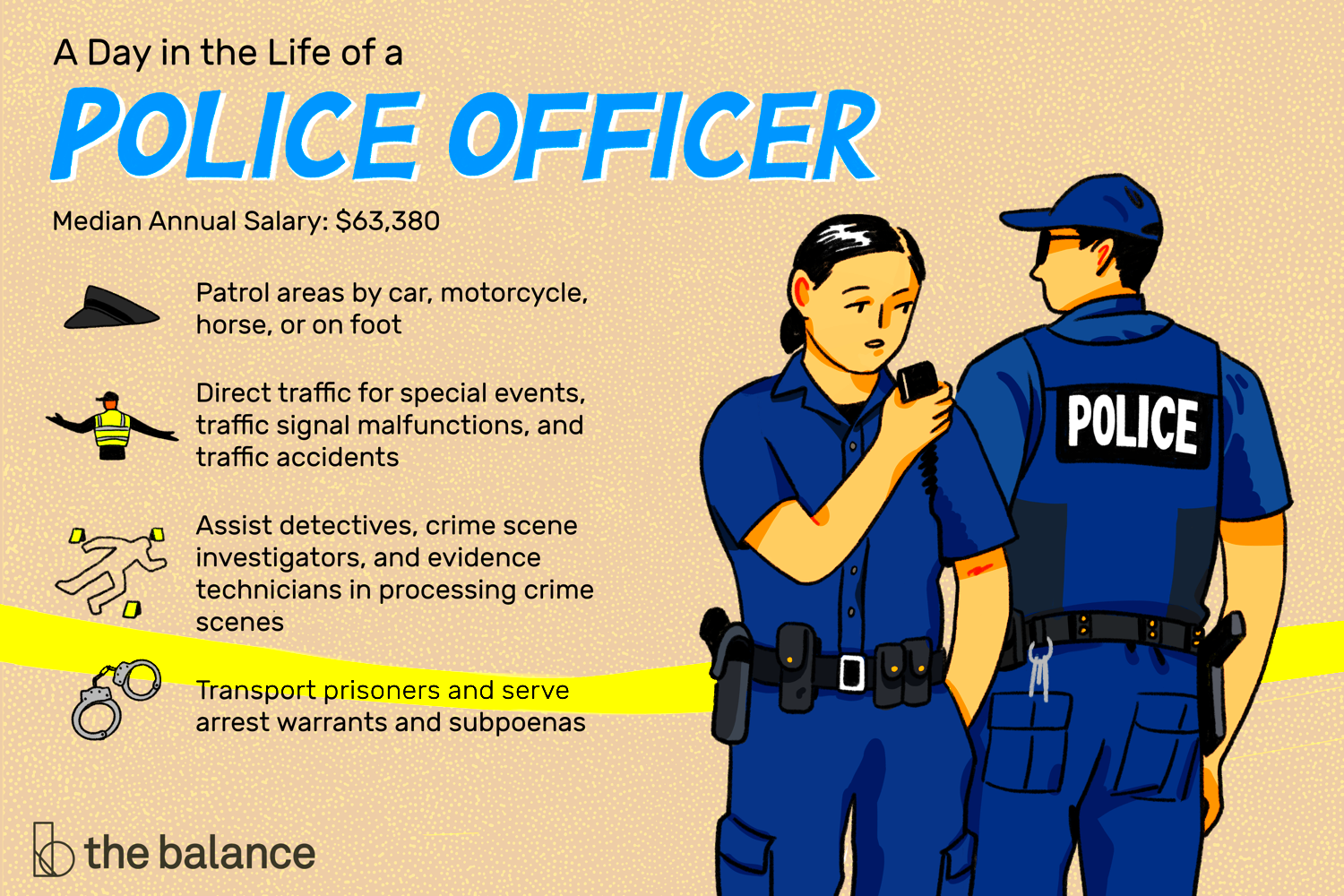Important Case Law Every Police Officer Should Know
Case law plays a crucial role in shaping the practices and procedures of police officers. Understanding these laws not only helps officers do their jobs more effectively but also ensures they respect citizens’ rights. This post will explore key case laws every police officer should be aware of, emphasizing their implications for daily law enforcement activities.
Understanding the Role of Case Law in Policing

Case law refers to the law as established by the outcome of former court cases. Here’s why it matters for police officers:
- Guidance for Actions: Case law provides police officers with a framework for making decisions on the street.
- Legal Precedents: Past rulings set legal precedents that influence future cases and law enforcement practices.
- Protection of Rights: It helps officers understand and protect citizens’ constitutional rights during interactions.
- Training Tool: Case law is often incorporated into training programs to educate officers about legal standards.
In summary, knowledge of case law equips officers to perform their duties while maintaining public trust and upholding the law.
Key Supreme Court Decisions Impacting Police Procedures

Several Supreme Court decisions have significantly impacted how police operate. Here are some key cases:
| Case Name | Year | Impact on Police Procedures |
|---|---|---|
| Miranda v. Arizona | 1966 | Established the requirement for Miranda warnings before interrogation. |
| Terry v. Ohio | 1968 | Permitted stop-and-frisk procedures under reasonable suspicion. |
| Gideon v. Wainwright | 1963 | Guaranteed the right to counsel for defendants in criminal cases. |
| Katz v. United States | 1967 | Expanded privacy rights and set standards for wiretapping. |
These cases illustrate the evolving nature of law enforcement and highlight the importance of staying informed about legal standards that govern police actions.
Landmark Cases on Search and Seizure

Search and seizure laws are fundamental to protecting citizens’ rights against unreasonable government interference. Several landmark cases have shaped how these laws are applied in practice. Understanding these cases is essential for police officers to ensure compliance and protect themselves legally.
- Weeks v. United States (1914): This case established the exclusionary rule, which prevents illegally obtained evidence from being used in federal courts.
- Mapp v. Ohio (1961): Extended the exclusionary rule to state courts, emphasizing that evidence obtained without a warrant or probable cause is inadmissible.
- Katz v. United States (1967): This case expanded the definition of search and seizure to include electronic surveillance, stating that citizens have a reasonable expectation of privacy.
- New Jersey v. T.L.O. (1985): Established that school officials could search students’ belongings if they have reasonable suspicion of wrongdoing, balancing students’ rights with school safety.
By understanding these key rulings, police officers can ensure they conduct searches and seizures legally and ethically, maintaining public trust and accountability.
Cases Influencing Arrest and Detention Policies
Arrest and detention policies are critical in maintaining law and order while safeguarding individual rights. Here are some influential cases that every officer should know:
| Case Name | Year | Significance |
|---|---|---|
| Gerstein v. Pugh | 1975 | Established the requirement for a prompt judicial determination of probable cause after an arrest. |
| Florida v. Bostick | 1991 | Clarified that police can stop and question individuals in public places, provided they do not imply a threat. |
| Atwater v. Lago Vista | 2001 | Affirmed that police can arrest individuals for minor offenses, emphasizing officer discretion. |
| Payton v. New York | 1980 | Established that police need a warrant to enter a person’s home for an arrest unless exigent circumstances exist. |
These cases illustrate the balance between effective policing and respecting individual rights, guiding officers in their daily interactions with the public.
Important Rulings on Use of Force
The use of force by police officers is a sensitive and often controversial topic. Understanding the legal boundaries is essential for responsible law enforcement. Here are some significant rulings that shape use-of-force policies:
- Graham v. Connor (1989): Established the “objective reasonableness” standard for evaluating the use of force, meaning that officers must use force that a reasonable officer would deem necessary in the same situation.
- Scott v. Harris (2007): Affirmed that police can use deadly force in high-speed chases when there is an immediate threat to public safety.
- Ferguson v. Charleston (2001): Highlighted that policies allowing police to detain individuals based solely on their race or pregnancy status can violate the Fourth Amendment.
- Texas v. Johnson (1989): While primarily about symbolic speech, this case underscored that the use of force must not violate constitutional rights, promoting accountability for officers.
These rulings are crucial for understanding the legal implications of using force and emphasize the importance of training and policy adherence in law enforcement.
Significant Cases Regarding Miranda Rights
Miranda rights are vital in protecting the rights of individuals during police interrogations. Understanding key cases surrounding these rights helps officers ensure compliance and respect for the law. Here are some significant cases that every police officer should be aware of:
- Miranda v. Arizona (1966): This landmark case established the requirement for police to inform suspects of their rights before interrogation, including the right to remain silent and the right to an attorney.
- Arizona v. Roberson (1988): Reinforced that once a suspect invokes their right to counsel, police cannot initiate further questioning without a lawyer present.
- Berghuis v. Thompkins (2010): Clarified that a suspect must explicitly invoke their right to remain silent; silence alone does not suffice.
- Salinas v. Texas (2013): Highlighted that failure to assert the right to silence before questioning can lead to the use of a suspect’s silence as evidence against them.
These cases underscore the importance of Miranda rights in safeguarding individuals’ constitutional protections and guiding police officers in their interactions with suspects.
FAQ on Case Law for Police Officers
As a police officer, understanding case law can feel overwhelming. Here are some frequently asked questions that might help clarify its importance:
- What is case law? Case law consists of laws established through judicial decisions in court cases, influencing how laws are interpreted and applied.
- Why is case law important for police officers? Knowledge of case law helps officers understand legal boundaries, protect citizens’ rights, and avoid potential legal issues in their work.
- How can officers stay updated on case law? Officers can stay informed through training sessions, legal updates, and review of relevant court decisions to understand how they impact policing.
- What happens if an officer violates case law? Violating case law can lead to suppression of evidence, legal action against the officer, and damage to public trust in law enforcement.
By understanding these frequently asked questions, officers can better navigate the complexities of case law and enhance their effectiveness in the field.
Conclusion on the Importance of Case Law in Policing
In conclusion, understanding case law is essential for police officers to perform their duties effectively and ethically. Case law shapes the way officers conduct searches, make arrests, and interact with suspects. By being aware of landmark decisions, officers can:
- Ensure Legal Compliance: Knowledge of case law helps officers adhere to legal standards, reducing the risk of violations.
- Protect Citizens’ Rights: Understanding individual rights ensures that officers respect the constitutional protections of those they encounter.
- Enhance Public Trust: Adhering to legal standards fosters trust and credibility between law enforcement and the community.
- Promote Accountability: Awareness of case law encourages responsible decision-making and accountability in police actions.
By prioritizing an understanding of case law, police officers can not only improve their practice but also contribute to a fairer and more just legal system.


